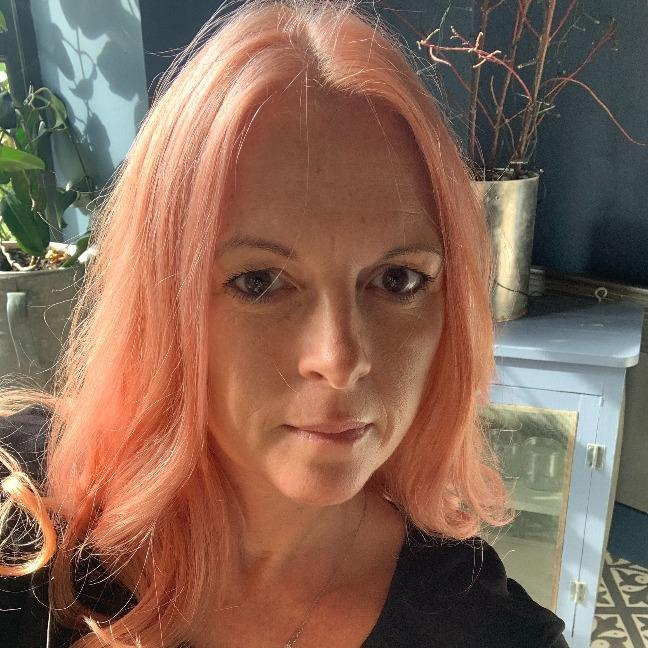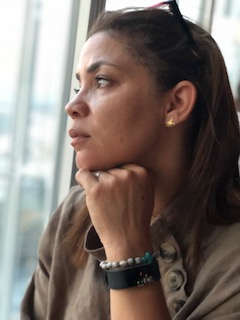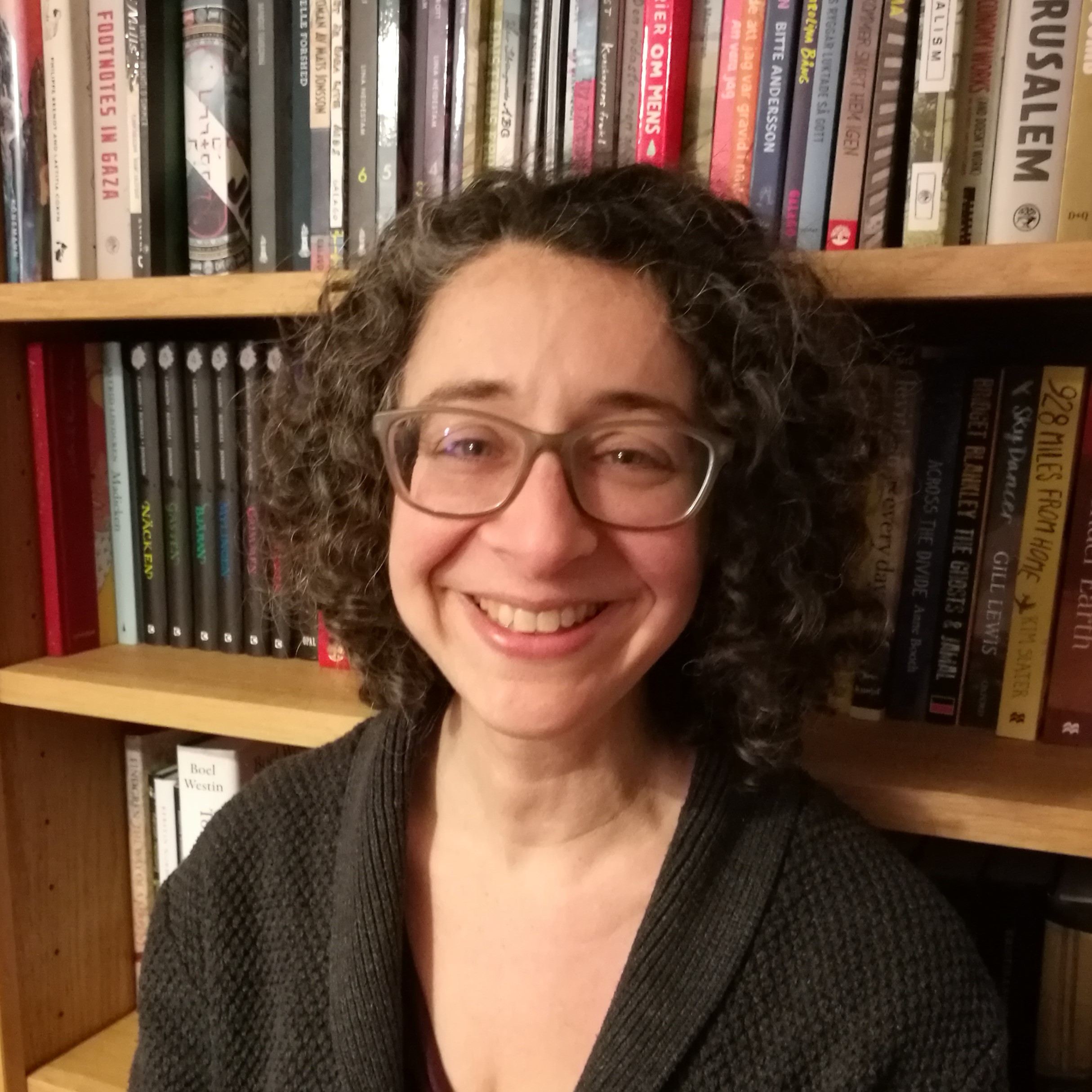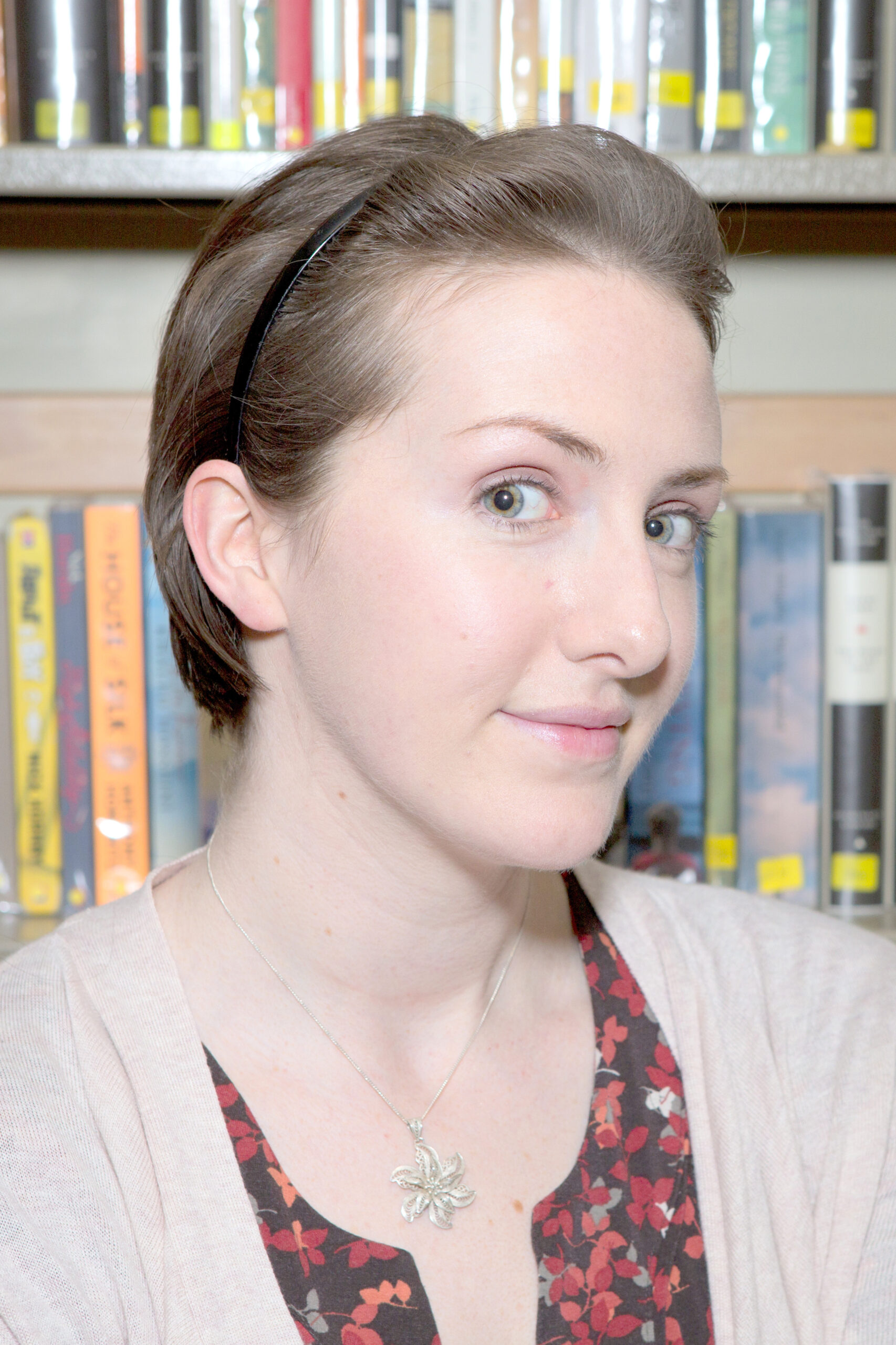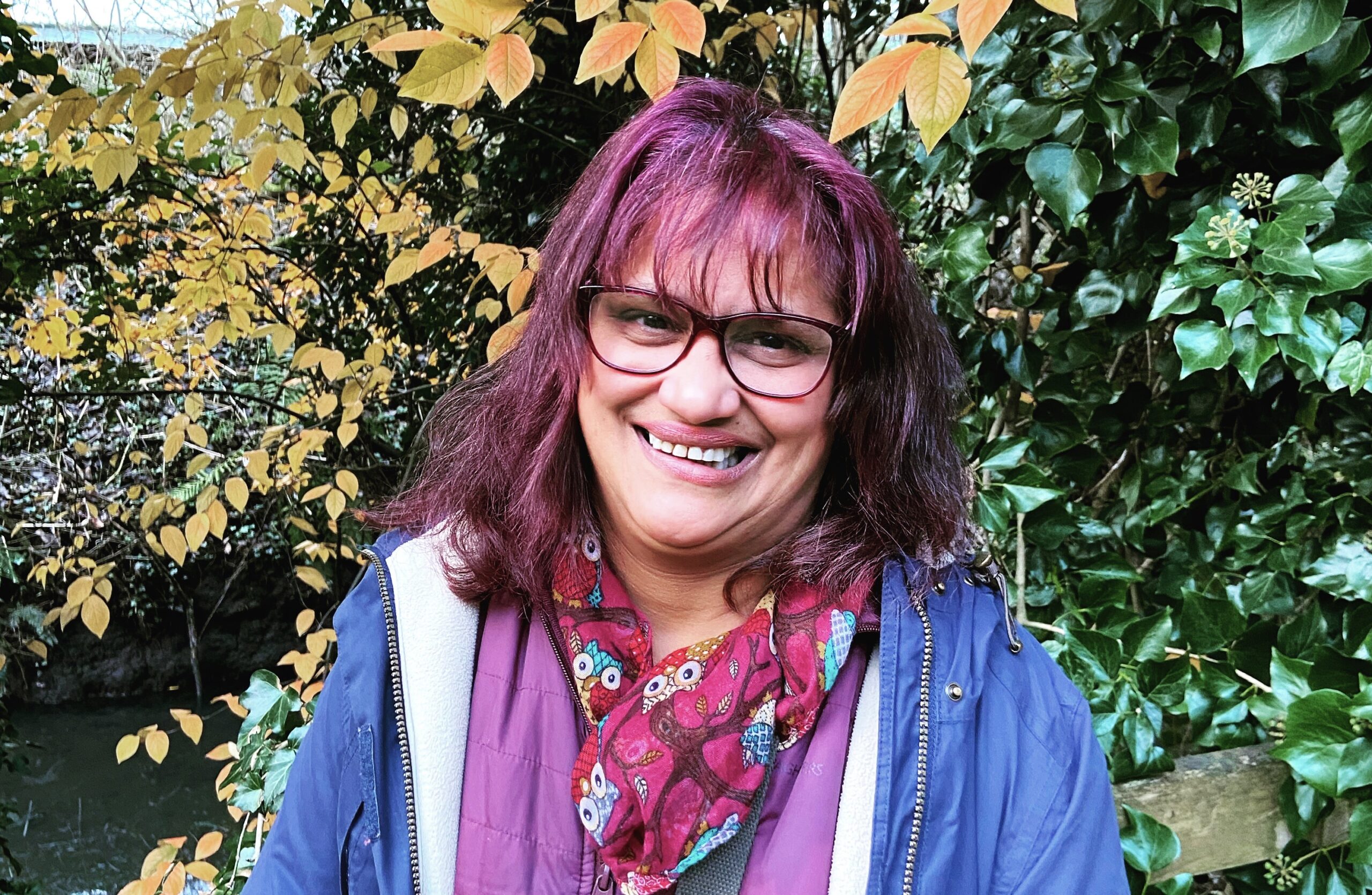Originals … with anthropologist Dr Susie Kilshaw
Dr Susie Kilshaw is a medical anthropologist based at University College London specialising in the anthropology of reproduction. In particular, her work focuses on pregnancy and pregnancy ends. Her previous research may seem a very different focus: men, masculinity and war, but the thread that runs through her work is gender and notions of reproduction and risk. Her book Impotent Warriors: Gulf War Syndrome, Vulnerability and Masculinity (Oxford: Berghahn, 2009) discusses the way Gulf War Syndrome narratives involve concerns about impaired masculinity. This work touched on the way sufferers of the condition expressed anxieties around their fertility and articulated concerns about compromised fertility and damaged reproduction. This focus on reproductive disruptions and risk have continued in her current work on reproductive loss. Her ethnography, Pregnancy and Miscarriage in Qatar: Women, reproduction and the state (Bloomsbury, 2020) and Navigating Miscarriage. Social, Medical and Conceptual Perspectives (Berghahn, 2020), co-edited with Katie Borg reflect a decade long research focus on miscarriage. Her ongoing Wellcome Trust – funded research focuses on the residues and remains of pregnancy ends in England.
More here
A few questions …
What do you find most challenging about motherhood?
The juggle and the mental load. At times I find balancing parenting, domestic life, and work challenging, as a result any sort of focus on myself disappears. The relentlessness of domestic and emotional labour often feels taxing. As a feminist married to an involved and loving father and partner, I am surprised and frustrated that so much of parenting and particularly its mundane domestic elements still seem to fall to me/the mum. This is often the subject of conversations with my friends- so I know I am not alone. Only today I met a friend, also the wife of a pilot. Our husbands are away several days a week, and we shared our frustration that we often find we are wholly responsible for holding the fabric of the family together. The constant ‘to do’ lists and stream of thoughts is a constant backdrop: what will we have to eat tonight? do I have those ingredients? Should I go to the shop before or after pick up? Does the youngest need PE kit tomorrow? Is her PE kit clean? Having a head full of this information is exhausting.
What are the highlights of motherhood?
I remember a close friend described her 2-year-old daughter as ‘really good company’. I remember thinking that this was one of the strangest things I had ever heard. Until I had a 2-year-old. Actually, to be honest this likely came later for me. I am now the mother of a 11- and a 14-year old and I simply enjoy their company. I am reminded of Tina Fey’s comment that having a teenage daughter is like having an office crush because you’re thinking about them a lot more than they’re thinking of you. Perhaps it is similar to an office crush because the slightest positive attention or comment fills my whole being with such pleasure, confidence, gratitude and sheer sense of accomplishment. My daughter saying ‘You’re a good mum’ or spontaneously saying ‘I love you’ is far better than that positive book review. Well, almost.
If you could change something of your mothering or parenting journey so far, what would it be?
I began to write that if I could change something it would be to have more confidence in that experiencing miscarriage(s) did not mean there was something wrong with my fertility, but I realise there is something else I would change. My sister died of breast cancer last year. I would give anything to change this element of my mothering journey, as her absence is acutely felt. We would often message one another about parenting concerns or to share amusing things out children had done. I am reminded daily of how her children are having to face life without her as their mother and this makes me ache with sadness. Her loss reminds me that we mother with help and support from the people around us and I wish she were still part of my mothering team.
Do you feel like a mother?
Most of the time I don’t feel like a mother. In my head I think I’m still twenty-two and trying to figure it all out. I definitely am still trying to figure it out, but then there are flashes of full realisation or my identity and my role as a mother. This usually happens when one of my daughters is ill or when they are upset about something. Last night my eldest had a nasty run in with a hot water bottle. The hot water bottle won, unfortunately, and it is in such moments when I most feel like a mum. When they need you most and you are the providing care, comfort, making important decisions about their safety or wellbeing. It is in those moments that I see myself as mum through their eyes.
What do you want most for mothers or parents?
Motherhood is highly moralised and often feels like a battleground.
One of the aims of my work is to populate the landscape of miscarriage discourse with diverse voices. It concerns me that women and their partners may feel that they aren’t responding in the ‘right’ way and that there may be something wrong with their experience or their approach. This is not isolated to pregnancy loss. There are so many ways that parents and, particularly mothers, can be made to feel guilty or that they are not living up to expectations. Motherhood is highly moralised and often feels like a battleground. I would like parents to see a plethora or approaches so that they can find something that makes sense to them. For them to see that parenthood is transformative, but also always transforming and in flux. Anthropology has helped to reveal how parenthood occurs in culturally distinctive ways and how we parent is not necessarily the only model or enduring model.
About your writing …
In your online article ‘How Culture Shapes Perceptions of Miscarriage’ published in 2017 on Sapiens.org, you write: ‘If there’s one thing a baby teaches us—whether through a miscarriage or a full-term delivery—it is that we are no longer in charge.’ Could you tell us more about your thinking?
In UK society and much of Euro America we are taught from a young age that we have control over our reproductive lives. Anthropologist Erica van der Sijpt (2013) has written about how the dominant language of reproduction is typically framed in discourses of choice and agency, with the expectation that desired fertility outcomes will be fulfilled with access, reproductive freedom and choice. Women are seen as individual agents, able to choose and construct their reproductive path. However, what is entirely missing in this is the sheer uncertainty of reproduction, the commonality of reproductive disruptions, and that there are limits to reproductive agency. The British women I have interviewed in my 10 years of researching pregnancy endings often speak about how their miscarriage was a shock and an unwelcome revelation that they were not able to control their fertility or reproductive lives. The women I met often planned their lives and their intended fertility outcomes meticulously, but became aware that pregnancies, births and family life often escape design. Miscarriage amongst my interlocutors was experienced as a lack of control and led to feelings of uncertainty and anxiety. Those that went on to have children saw a miscarriage as a stark reminder that when it comes to fertility, reproduction, birth, babies, and children that much is out of our control.
In your introductory chapter to ‘Navigating Miscarriage. Social, Medical and Conceptual Perspectives’ (Kilshaw and Borg (eds.) (Berghahn, 2020) you write ‘Miscarriage provides opportunities to investigate cultural understandings of motherhood: how we approach miscarriage tells us about what a pregnant woman or mother is to be.’ How can anthropology help us all make sense of miscarriage and motherhood?
An anthropological lens also enables us to see variation and it destabilises our assumptions about motherhood and miscarriage.
Anthropology provides a means to explore miscarriage as simultaneously biological, social and cultural. In Navigating Miscarriage the chapters explored how miscarriage interacts with kin, marital, gender, religious, and political structures and revealed how despite miscarriage being a global phenomenon, it is framed, understood and experienced very differently depending of cultural and historical context. Anthropologist Marcia Inhorn who has written extensively about infertility and assisted reproductive technologies in the Middle East and the USA has shown that ‘reproduction is always embedded within larger social, cultural, economic, and political relations and forces’ (2007:10). Context is always relevant when it comes to reproduction, miscarriage, and motherhood. When I teach medical students about pregnancy loss I emphasise that context is always important on an individual, family, community, social and cultural level. The same woman may experience her miscarriages differently depending on her specific context. An anthropological lens also enables us to see variation and it destabilises our assumptions about motherhood and miscarriage.
An anthropological approach highlights fluidity and how things are not necessarily fixed. Miscarriage in the UK used to be silenced and seen as something about which one shouldn’t speak. In a short space of time, we are now used to celebrities talking about their miscarriage. Clinical practices have been informed by such shifts with changes in clinical language and increased sensitivity to miscarriage care.
More on motherhood …
The road to motherhood is so often rocky and uncertain.
The road to motherhood is so often rocky and uncertain. For women of my generation, since puberty we were led to believe that pregnancy was something scarily easy to achieve. Sex education focused entirely on how not to get pregnant. Conception and pregnancy seemed straightforward: a linear progression ending in the birth of a child. We were the agents of this; our reproductive lives and family construction were entirely in our control. Developments in and the global spread of reproductive technologies, including easy access to birth control and Assisted Reproductive Technologies like IVF have informed how we imagine foetuses, babies, children, parents and families. From home pregnancy tests to the coil to IVF to fertility apps, technologies form how we think of reproduction. Key to this is an emphasis on choice and domination. This has led to a prevailing view, particularly among middle-class, educated, predominantly white women, that pregnancy timing can and should be chosen (Elliot 2020).
Many of the women I have interviewed in England suggest that they typically planned their pregnancies around weddings, education, work, holidays, buying homes, the age of a child, and other major life events. In this way I was very similar to my interlocutors. Like the women I interviewed, I threw myself into what has now become commonly known as ‘TTC’ (trying to conceive). Similar to my approach to most things I did most things I approached-with curiosity, a great deal of research, and perhaps a tinge of obsession. I took my folic acid and pregnancy vitamins, I exercised, I reduced my alcohol intake or at least tried to. When I did get pregnant, I was relatively confident that it would all work out and I did all that I could to reduce the risk of anything going wrong.
Reproductive technologies create new choices, but also more burdens, accountabilities and anxieties.
By engaging in these behaviours, I was also performing or at least signalling my embarking on motherhood. In this way we often engage with and commit to parenting long before becoming parents. Indeed, new forms of ARTs such as egg freezing demand that people be forward thinking, reflexive reproducers in advance (Faircloth and Gurtin 2017). Self-improvement and self-monitoring have become central to fertility and pregnancy in contemporary UK, part of a broader trend of what these authors have termed ‘anxious reproduction’. Reproductive technologies create new choices, but also more burdens, accountabilities and anxieties. The implication is that by following expert guidelines and engaging in this discourse, you are keeping your pregnancy/ embryo/ foetus safe; hence it is unsurprising that women in such contexts experience shock and feelings of culpability in the face of reproductive disruption or loss. When things aren’t straight forward it is unsurprising that the burden often falls on the woman. Women typically expresses feelings of shame, guilt, culpability and frustration. Miscarriage is often perceived as a failure of successful monitoring or appropriate planning.
The discourse of control surrounding reproduction extends to a sense that medicine can prevent a miscarriage. I cannot count the number of times that a woman in a state of extreme distress calls their doctor, midwife or early pregnancy unit anxious to be seen immediately in the hopes that their bleeding or pain can be explained away or stopped and their pregnancy saved. It is so very hard to accept that one isn’t responsible for a miscarriage and that nothing can be done to save a pregnancy such as this. The façade of control suddenly comes crashing down and it is so often the woman and the health care professionals that are left in the shards. I’ve seen dedicated, hard-working, caring, professional NHS nurses and midwives being inadvertently consigned to an unwelcome adversarial role because of these expectations of control and anticipation around the mastery of medical technology and interventions. The nurses I have observed for over 20 months during my fieldwork are devoted to delivering sensitive, responsive and professional care to women experiencing miscarriage and yet they often bear the brunt of expectations of medical interventions.
I strive to normalise miscarriage and pregnancy ends generally, including abortion
As part of my work, I strive to normalise miscarriage and pregnancy ends generally, including abortion. We would benefit from a new approach to pregnancy that recognises it does not always end in the birth of a baby and instead see it for an important social and biological process regardless of outcome. We would benefit from more realistic expectations around fertility, pregnancy, pregnancy ends and reproduction. We should recognise that the quest for parenting is all too often filled with potholes, detours, junctures. We do a disservice to women by not teaching all people about the reality of miscarriage and other pregnancy ends and teaching them very early in their sex and reproduction education.
